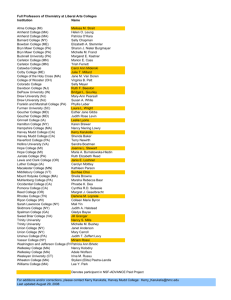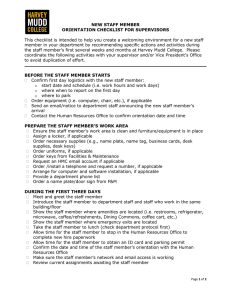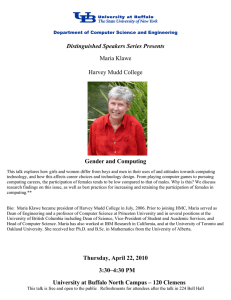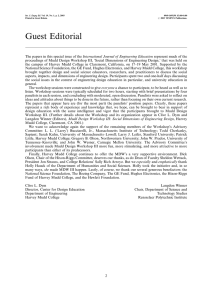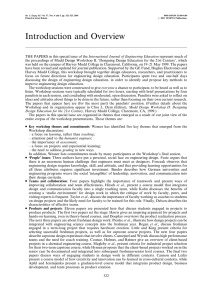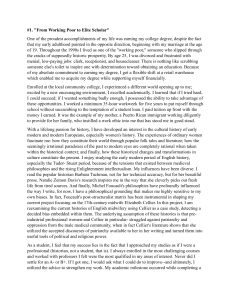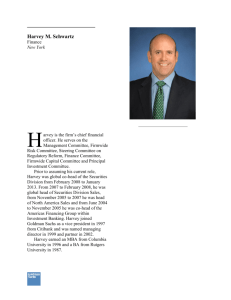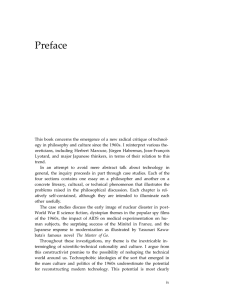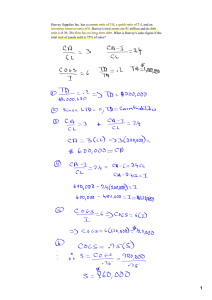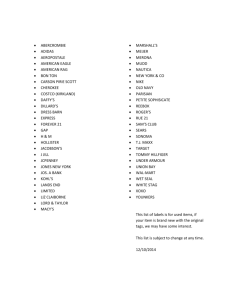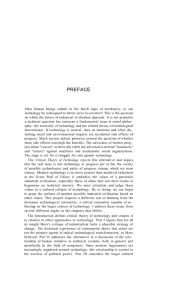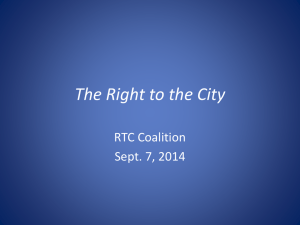Preface
advertisement
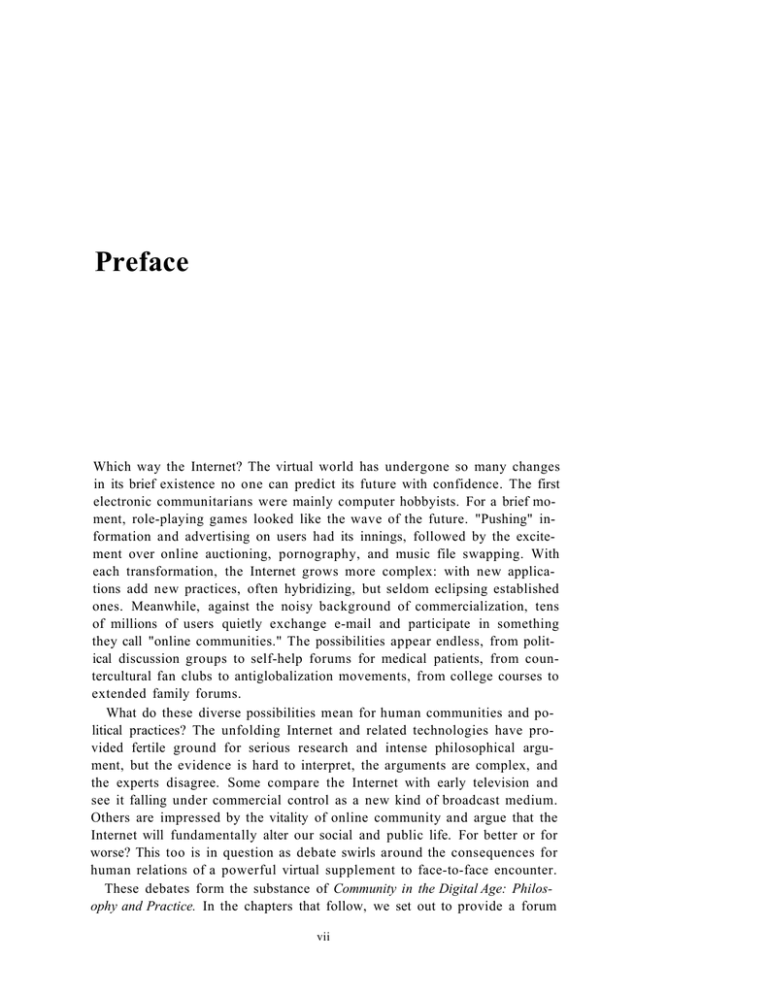
Preface Which way the Internet? The virtual world has undergone so many changes in its brief existence no one can predict its future with confidence. The first electronic communitarians were mainly computer hobbyists. For a brief moment, role-playing games looked like the wave of the future. "Pushing" information and advertising on users had its innings, followed by the excitement over online auctioning, pornography, and music file swapping. With each transformation, the Internet grows more complex: with new applications add new practices, often hybridizing, but seldom eclipsing established ones. Meanwhile, against the noisy background of commercialization, tens of millions of users quietly exchange e-mail and participate in something they call "online communities." The possibilities appear endless, from political discussion groups to self-help forums for medical patients, from countercultural fan clubs to antiglobalization movements, from college courses to extended family forums. What do these diverse possibilities mean for human communities and political practices? The unfolding Internet and related technologies have provided fertile ground for serious research and intense philosophical argument, but the evidence is hard to interpret, the arguments are complex, and the experts disagree. Some compare the Internet with early television and see it falling under commercial control as a new kind of broadcast medium. Others are impressed by the vitality of online community and argue that the Internet will fundamentally alter our social and public life. For better or for worse? This too is in question as debate swirls around the consequences for human relations of a powerful virtual supplement to face-to-face encounter. These debates form the substance of Community in the Digital Age: Philosophy and Practice. In the chapters that follow, we set out to provide a forum vii viii Preface for disagreement amongst some of the leading North American social scientists and philosophers concerned with the social and political implications of this new technology. We have tried to avoid proselytizing for a single point of view. The result is a display of provocative argument on all sides of the question of the Internet, community, and democracy by a collection of scholars whose approaches to these questions are as varied as they are engaged. Philosophers argue over whether the Internet will enhance or diminish public life. Most agree that television has been bad for democracy. Is the Internet the antidote to broadcasting that can reinvigorate public life? Or will it fragment society by enabling citizens to associate only with like-minded others? Social researchers look to the practice of online community for insight into our evolving social life. As suburbanization and the breakdown of the extended family and neighborhood isolate individuals more and more, the Internet appears as a possible corrective. Are virtual communities "real" enough to support the kind of personal commitment and growth we associate with community life, or are they fragile and ultimately unsatisfying substitutes for human interaction? We invite you to examine these questions, informed by both philosophy and practice, with the thinkers we have gathered here. The genesis of this book was a lively conference held in 2002 at Harvey Mudd College, where we shared the Hixon/Riggs Visiting Professorship in Science Technology and Society. Most of the chapters that follow were debated at this forum; others were solicited for the purposes of this volume. Many people at Harvey Mudd contributed to the stimulating and supportive environment from which this book emerged. In particular, we would like to thank Tad Beckman, Richard Olson, Sheldon Wettack, Jeff Groves, Holly Hauck, Hank Riggs, and Adelaide Hixon for their support of this endeavor. We would also like to thank Brenda Hadenfeldt, Pamela Anderson, Sami Asiri, Sandra Parris, Jenn Nemec, and Carrie Obry for their assistance in the preparation of the manuscript. Finally, we would like to acknowledge the remarkable science and engineering students of Harvey Mudd College—this book is dedicated to the humanist in all of them. Andrew Feenberg, Vancouver, British Columbia Darin Barney, Ottawa, Ontario November 2003 Community in the Digital Age Philosophy and Practice Edited by Andrew Feenberg and Darin Barney ROWMAN & LITTLEFIELD PUBLISHERS, INC. Lanham • Boulder • New York • Toronto • Oxford
